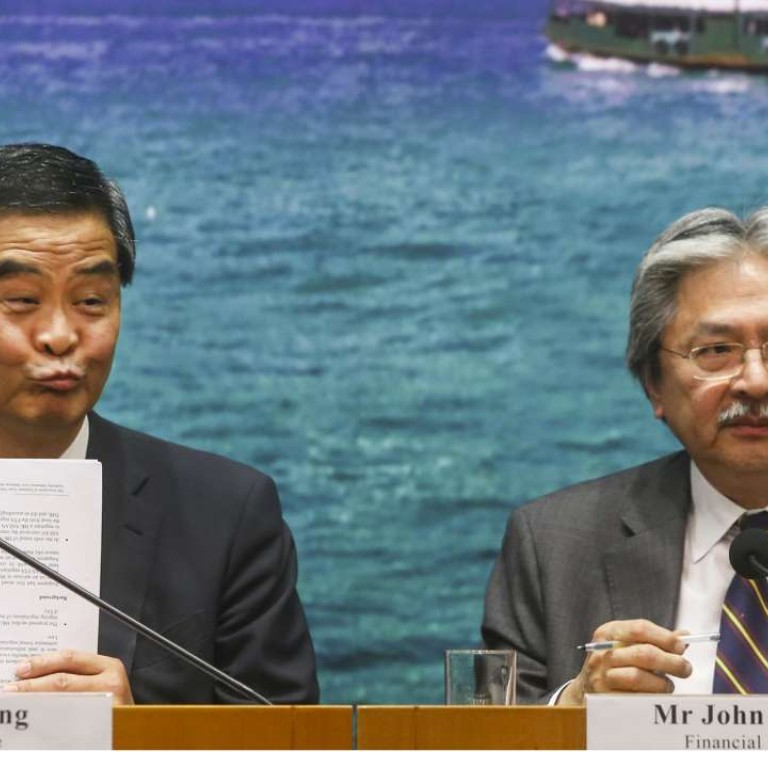
Hong Kong chief executive made call on housing project at ‘Three-C meeting’, government sources say
Gathering involving city’s leader and top three ministers serves as clearing house for major issues
The weekly meeting involving Hong Kong’s top officials during which a decision was made to defer a key part of a controversial housing project in January 2014 is the government’s high-level clearing house for major issues.
The meeting, which has been in place since Donald Tsang Yam-kuen was chief executive, is held every Monday morning and usually lasts two to three hours.
Watch: top Hong Kong officials on Wang Chau rural housing scandal
A government source familiar with it said the issues cleared by top officials at the meeting, held a day before the Executive Council’s weekly meeting, covered all policy areas such as land, education, health care, politics and security.
The source said it was the chief executive who had the final say during what has been described within the administration as the “Three-C meeting”. In Chinese, the position held by the top three secretaries is pronounced as “C”.
“The Wang Chau housing project was only briefly discussed at that meeting and there was not much time for detailed deliberation,” the source said. “Don’t forget that the issue was by no means controversial and did not draw much public attention back in January 2014.”
Andy Ho On-tat, who used to be the information coordinator for former chief executive Donald Tsang, said the weekly meeting was meant to be informal.
“I don’t think the four of them would get themselves into a situation where there would be a show of hands,” he said. “At the end of the day, the chief executive would make the call.”
At the end of the day, the chief executive would make the call
At a press conference on Wednesday, Leung said he took direct responsibility for the public housing project’s partial suspension.
He said it was during a weekly meeting with John Tsang, Carrie Lam and Rimsky Yuen on January 27, 2014, that he decided to take the Housing Department’s recommendation to proceed with the first phase of building an initial 4,000 flats in Wang Chau and defer the second and third phases.
The decision was meant to give the administration time to tackle the brownfield site, or ruined farmland, which is being used by rural businessmen for car parks and open storage. The site could yield 13,000 public housing flats.
The decision to build 17,000 public housing flats in phases was made seven months after Leung chaired a meeting of a task force on developing Wang Chau. At that meeting, guidance on the project was given to relevant policy bureaus and departments.
Another source said the task force only met once because its job focused on giving instructions on major issues, such as raising the plot ratio and deciding the development density for the site.
Officials subsequently started “soft lobbying” rural leaders to gain their support for the project.
On Monday, Leung brought John Tsang into the controversy by identifying the financial secretary’s Steering Committee on Land Supply as the body that followed up the details of the project.

